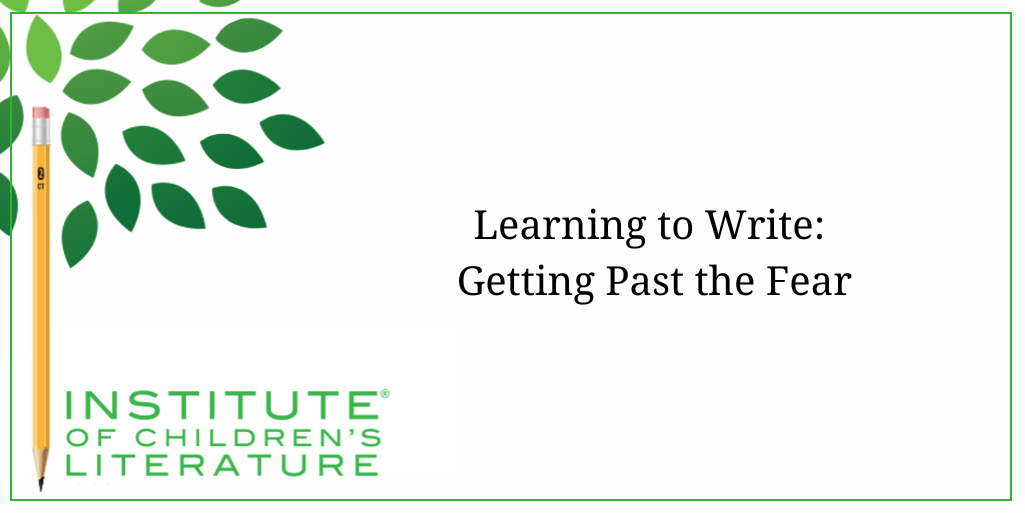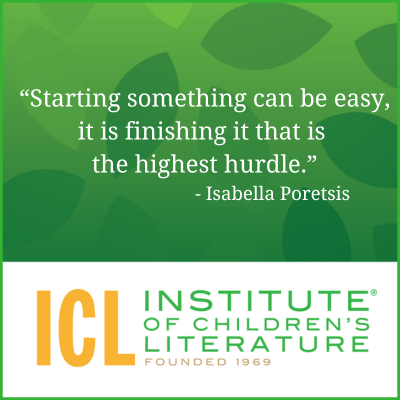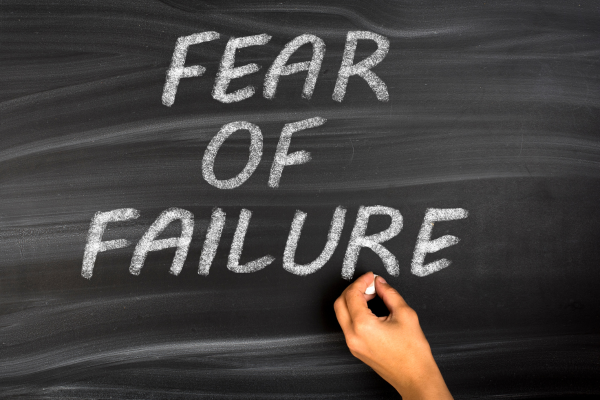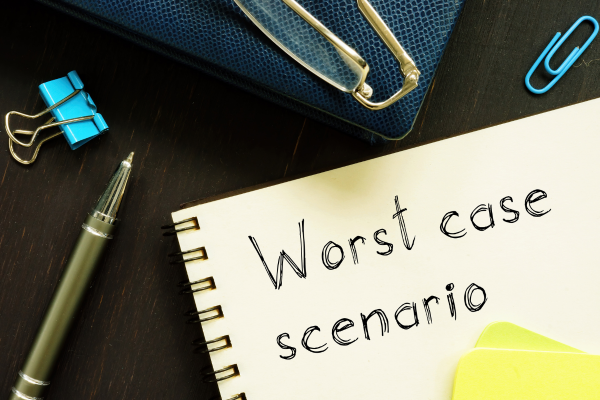
5 Ways Writers Can Prep for 2025 Goal Setting
Before we roll on to the new writing year, let’s harness our optimism for the blank slate before us and prepare for our 2025 Goal Setting just for writers.

The blank page is terrifying. The journey is scariest before the first step. Sometimes tackling a new experience like learning to write can be scary too. You finally feel like you’re taking positive steps toward this writing dream you’ve had for so long and you’ve invested money. Those two things—desire and expense—add fuel to the fear of failing. And that fear can be paralyzing, keeping you from jumping in with the enthusiasm you know is in you.

Obviously, all this fear is a hindrance to your success, both in learning to write and in applying that learning on your own, but what do you do to overcome the fear and keep moving?
One of the first things needed to overcome the kind of creative block that comes from fear is accepting that the fear exists and that it doesn’t make you weak. Fear isn’t a sign that you aren’t cut out for writing or learning. Sure, any creative endeavor is challenging, usually more challenging than we realize when we throw ourselves into it, but the well of creativity within those who want to create is amazing. It is more than enough. The fear is merely a sign of how important this is to you. The more important an endeavor, the more likely we are to be hit by fear of failure. It’s normal.
However, to overcome the fear and get yourself moving forward, you need to understand what is driving it. For most, it’s probably a fear of failure, especially if it has taken some effort to admit how much you want this. And there’s usually a dash of worry about how others will react if you don’t succeed after committing to an action they may not have supported in the first place.

Anytime we face change, there is reticence, even when it’s a welcome and wanted change. The twin fears of success and failure often pop back up near the end of a learning experience and hold many students back from completing a course. Once you complete the course, you need to begin working without the training wheels, which is what you want, but it’s also scary.
These may not be the only things contributing to your fears. You may have worries connected to past learning experiences where you didn’t excel. You may be afraid of people finding out you’re doing this thing for yourself and mocking it. Whatever fuels this learning block, the first step to overcoming is figuring out what’s going on.
Once you know what has you so worried that it’s grown into a creative and learning block, there are several things you can do to help deflate the fears to manageable levels so you can move on. One thing I like to do is consider worse-case scenarios. What’s the worst thing that could happen? Once I do that, I compare that worst thing to other worst things I’ve experienced. How bad is it really? And what options will remain for me if the worst happens?
For example, at one point, I wanted to write and sell a picture book. I loved the idea of having a published picture book to share with my (then) very young daughter. I loved the idea of taking her to a bookstore and finding my book “in the wild.” I loved the idea of seeing my words inspire someone else’s amazing illustrations.

Part of working out these worst-case scenarios is evaluating their likelihood. For instance, I could take a course and my work could be so bad the instructor goes mad, drives to my house, and bludgeons me with a dictionary, but that’s not something that’s going to happen. It’s not impossible, but it’s so close to impossible that I could confidently whittle it off my list of worst-case scenarios. And as I whittle down the unlikely, I begin to see that the realistic worst-case scenarios have alternatives. Say I discover I’m really not cut out for writing children’s fiction, but I excel at children’s nonfiction. It wasn’t on my radar, but I discover I actually love it. Or say I discover that I’m not good at writing literary stories that win awards, but I can write funny stories that children enjoy. In many ways, looking at the worst case and whittling away all the things that stand no real chance of happening, I get a clearer look at all the options I might choose, and all the ways I can succeed, even if I fail. Once I know failure doesn’t prevent success, the fears lose the power to drag me down.

You must combat it with the truth. What if I find out I can’t write for kids? Maybe it’s because you were meant to write for parents. Maybe it’s because your stories are really for adults. You may be on the wrong path, but that doesn’t mean you aren’t going in the right direction. And learning where you don’t fit takes you closer to learning where you do fit.
That doesn’t mean you should give up easily. Remember my discovery about picture books? Sure, I had to pursue a new writing route, but I didn’t discard my picture book writing plan until I’d given it full effort— study, work, feedback, and submission to publishers. You might read that and think, “But I don’t want to waste all that effort.” None of it was a waste. Everything I learned while trying to become a picture book writer made me so much better at the chapter books where I ultimately excelled. I learned to write tight. I learned to be funny in few words. I learned to evaluate publishers and agents. None of it was wasted. All the work I put into going after something I couldn’t do, launched me far ahead when it came time to do the writing where I could excel.
And that’s the biggest thing to keep in mind as you battle fear—what you are doing isn’t a waste. Succeed or fail in this moment, you’re still gaining skills you will use successfully, and you are moving in the direction you want to go. Your destination may change, but nothing about the learning to write process is a waste. It may be frustrating today, but you will reach a place where you can see how much this effort led to where you were meant to be. So do battle with those fears because when you break through, the work you’ll do will be so worth it.
With over 100 books in publication, Jan Fields writes both chapter books for children and mystery novels for adults. She’s also known for a variety of experiences teaching writing, from one session SCBWI events to lengthier Highlights Foundation workshops to these blog posts for the Institute of Children’s Literature. As a former ICL instructor, Jan enjoys equipping writers for success in whatever way she can.

Before we roll on to the new writing year, let’s harness our optimism for the blank slate before us and prepare for our 2025 Goal Setting just for writers.

Writers can be thin-skinned when it comes to getting feedback on their work. Let’s look at 4 ways to positively deal with constructive criticism!

Rejection is part of the territory when it comes to being a writer. Today we offer reflection for writers to help redirect your efforts after a rejection.
1000 N. West Street #1200, Wilmington, DE 19801
© 2024 Direct Learning Systems, Inc. All rights reserved.
1000 N. West Street #1200, Wilmington, DE 19801
© 2024 Direct Learning Systems, Inc. All rights reserved.
1000 N. West Street #1200, Wilmington, DE 19801
© 2024 Direct Learning Systems, Inc. All rights reserved.

1000 N. West Street #1200, Wilmington, DE 19801
© 2025 Direct Learning Systems, Inc. All rights reserved.

1000 N. West Street #1200, Wilmington, DE 19801
©2025 Direct Learning Systems, Inc. All rights reserved. Privacy Policy.
3 Comments
Good word.
Hannah Liles
8-11-23